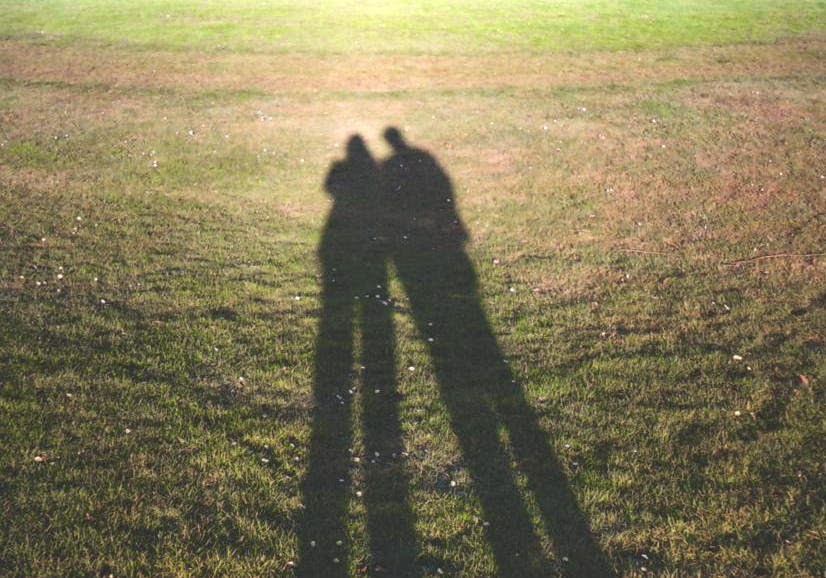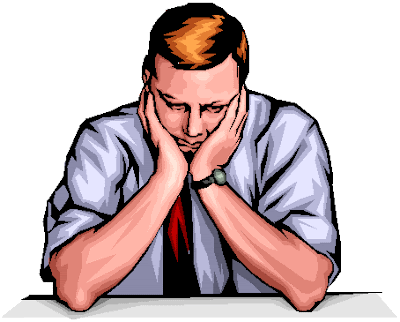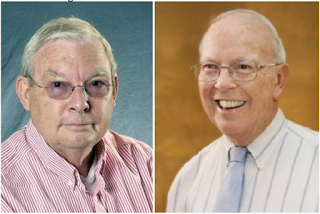Shadows - a short story
I wrote this short story for the 2014 edition of Cactus Flower, the annual literary publication of BITS, Pilani.
Everything that we see is a shadow cast by that which we do not see.
 |
| Image courtesy: http://pursuingthewind.blogspot.in/2012/07/just-shadow.html#.U6wwE3WSzfE |
Everything that we see is a shadow cast by that which we do not see.
-
The shadows lived in their own gray world.
It was a funny world, theirs. It was intricately interwoven with the world of the humans. Yet, the shadows didn't know about it. In fact, they didn't know that anything could exist outside their two dimensional universe. According to them, everything that could possibly exist was confined to a length, and a breadth, and nothing else.
Since the dawn of time, the shadows had built their own societies around these two spatial dimensions. They had expanded their civilizations, waged their wars, discovered new lands, and overthrown their governments – all the while, cradled in the physical realities of a length and a breadth. The shadows had even developed their own mathematics, made advancements in the sciences, and had almost completely explained all natural phenomena. Their greatest philosophers had at times mulled over the concepts of higher spatial dimensions; but they had been at a complete loss to visualize anything that could do justice to their ideas. Such thoughts had therefore died obscure deaths, in the minds of the great thinkers of yore.
The seminal breakthrough came several millennia after the shadows had established society and a planar world order – when one of their thinkers postulated the existence of a third non-spatial dimension. He argued that space was, by its very nature, limited to two dimensions – and hence this third dimension had to be something else. He called it time.
This seemingly unthinkable idea had initially jolted their universe – but since then, almost every aspect of their thinking had been founded upon it. The sum total of scientific knowledge in the shadow world could therefore be explained by the concept of a length, a breadth, and a time. It was all that they needed to understand and rationalise the real world.
-
The young man lay slumped in the corner of the cell. If looks were anything to go by, it would have been difficult to guess his age. His shrivelled and shrunken frame tossed about on the cold prison floor - restless and wheezing.
He was aware that he did not have many more days to live, and he was quietly thankful for that. He knew that he was living on borrowed time, because of the mercy shown by a certain law – which denied the death sentence on grounds of his age. Two suicide attempts had failed; his gun had been taken away by the Austrian guards. He hoped and wished that his wheezing would worsen enough to kill him off in a few days. If not, then he would probably have to fast till the end.
That wouldn't be too hard.
He had some vague idea of what was happening outside his prison. And he knew that the whole wide world was in chaos because of his actions. They called it a crime. But he called it a revolution.
His own words that he had uttered during his trial, echoed in his mind, “I am a Yugoslav nationalist, aiming for the unification of all Yugoslavs, and I do not care what form of state, but it must be freed from Austria.”
A smile flickered upon his pained visage. Like a faint light shining through a blanket of darkness.
The Great War will free my people, he thought.
His mind wandered back to the day when he had pulled that trigger.
I have done my job. Now I can die in peace.
-
The Austrian guard marching down the aisle couldn’t be more depressed with the state of affairs. The War had claimed the lives of almost every single person in his native village. News had arrived that his two younger brothers had died during a bombing raid over Venice. And he had no idea when he would be freed of his duty today, so that he could go and break the tragic news to his family. He stomped heavily down the staircase, cursing under his breath.
Bloody prisoners. A month more, and I’m done with this shit-hole.
He thought of what would happen of his family - of his ailing mother and his little sister. He hesitated on the staircase, and pushed back his tears. His mind went back a couple of hours – and he pictured the dying prisoner in the dark corner - who had been indirectly responsible for everything that plagued the world today.
He had entered his cell, placed the cold insipid soup on the floor and was about to leave when the frail voice had made him stop and turn around.
It had made his blood boil.
“Your country will die.”
Followed by a hollow snickering laughter. The sort of cold laughter that reflected the emptiness of a man who had nothing else to live for.
The guard had never felt more venomous and vindictive in his entire life. His immediate reaction
had been an intense desire to choke the crumpled pile of bones and put an end to his sorry existence.
But he knew he couldn't. So he had simply walked heavily across – and finding no other way to vent out his angst and frustration – he had trampled upon his outstretched fingers. He could have done it for hours, and it would have given him immense pleasure. But he knew it would be of no use.
“You piece of shit. You sorry piece of shit," he swore.
The prisoner hadn't yelped in pain. On the contrary, his maniacal hollow laughter had only intensified.
How many deaths will it take till he knows; that too many people have died?
Back on the flight of stairs, his eyes strayed up at the skylight, and he could see the first rays of the sun shining down through it. A new dawn was breaking. He thought of how elsewhere in the world, where the Great War hadn’t quite ravaged people as it had ravaged his country - how people were still going about with their daily routines, unmindful of the horrors and tragedies that the war was inflicting upon thousands. He thought of the great wheel of life that spun fairy tales with some lives, and doubled up as a killing automaton for others - and he sighed. Is happiness so hard to achieve?
He turned off the two dim bulbs that had illuminated the corridor throughout the night, and walked down the remaining steps. He might have glanced back; if he had, he might have even seen his shadows die as the lights went out.
-
There is no easy walk to freedom anywhere, and many of us will have to pass through the valley of the shadow of death again and again, before we reach the mountaintop of our desires.
-
The gray world of shadows was just that. Gray. Always gray. It never saw any other colour. Anything and everything, was either black, or white, or one of the infinite shades of gray. Their understanding of day and night, was not quite the same as that of the humans. The divine Light, as they called it, was what caused day. The lack of the divine Light, caused night. It was cloudy, when the intensity of the divine light was lowered, and bright when it was increased. The divine Light explained a lot of things. But nothing could explain the divine Light itself. In fact, the very best scientists of the world were trying to understand what this divine Light really was. It represented the very frontier of cutting-edge research, and their best academicians - the very elite of the thought leaders - were the ones who were working on it.
It was on one day, that the divine Light was cheerfully bright, and the shadows were celebrating the end of the clouds. Bright days were universally favoured in this gray world. It aided in reproduction, and had a thousand other health benefits. Cloudy days in general, had often proven to be serious health hazards. Long streaks of cloudy days had even killed off large numbers of citizens. So on this day, with the divine light shining at its fullest, there was enough reason to celebrate.
In one small hovel in the shadow land however, there was no dearth of gloom and despair. The mother was distraught, and the father was still not able to fathom the news that had just arrived: that their younger son had been killed in a great war. In a land, far far away.
-
Pulvis et umbra sumus. We are, but dust and shadow.
-
The prisoner was certain that he wouldn’t live past this day. He had always been an atheist, but he had always had premonitions. If he died today, he knew it wouldn’t be in vain. He would die, knowing that the Great War - the outcome of which, though still uncertain, was now looking rosier than ever, would finally free his fellow countrymen.
The wheezing in his chest was unbearable. Still, he was satisfied. He raised his head weakly to look at the cold soup that the guard had left in the cell a few hours ago. He had laughed at the guard, and mocked at him - telling him how the days of Austro-Hungarian empire were numbered. The guard had glowered, stamped on his hands with his boots and left. The prisoner's ringing maniacal laughter had echoed through the dark corridors of the Terezin prison.
And now, he felt he could die in peace. He had never believed in God. But in the last few minutes of his life, he could see himself staring upward, at the dark ceiling of the cell, and asking someone above to kill him.
Whoever He was, he knew, had waited long enough to take him.
And now, He must.
-
The Governors of the Universe sat in council. They had discussed this at length. But, in the end, nothing else could be done. Nothing can alter that which had been defined by the higher powers.
The Light had already dimmed. It had done what it had been destined to do. And now it needed to be switched off. To maintain the consistency of the universe. Because destiny was the only constant; the man had to die, the War had to end.
With a decisive nod, one of the Governors looked at the others, and motioned.
Let it be done.
And almost like magic, the Light went off.
-
He, who had less than four years back, assassinated Archduke Ferdinand Franz of Austria and his wife Sophie, gave one last gasp. That final breath escaped his lips.
He closed his eyes.
-
According to the records, Gavrilo Princip died of tuberculosis and malnutrition on the 28th of April, 1918, in his cell in Terzen in Bohemia.
He was 23 years old.
Less than seven months later, the Central powers had surrendered.
The First World War had ended.


Comments